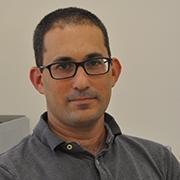Research Interests:
For SARS-CoV2 and for future emerging viruses, there is an urgent need for a platform that can quickly generate neutralizing agents: both antibodies and immunoadhesins.
While antibodies may be strain-specific and allow for viral escape mutants, immunoadhesins- based on the ACE2 receptor - are expected to be broadly neutralizing against all extent and future SARS-CoV2 strains, as well as against other viruses of the SARS-CoV family.
Uniquely, we can select for improved antibodies and ACE2-derived immunoadhesins in the in vivo setting. We rely on our success with anti-HIV neutralizing antibodies. With B cells engineered to express a neutralizing antibody against HIV we have demonstrated that upon immunization of mice, adoptively transferred cells home to germinal centers retain memory and undergo clonal selection. Here, mice will receive the B cells engineered to express either a SARS-CoV (2002) neutralizing antibody or an ACE2-derived immunoadhesin.
The immunoadhesins tested will be the full ACE2 as well as peptides representing crucial ACE2 determinants, shown to allow SARS-CoV neutralization. Mice will subsequently be immunized with the SARS-CoV2 Spike protein. We will perform high throughput sequencing of the anti-SARS-CoV antibody or immunoadhesin sequence from the extracted spleens and identify candidate anti-SARS-CoV2 antibodies and immunoadhesins by their abundance and mutation rate, implying affinity maturation and clonal expansion. We will synthesize the antibodies and immnoadhesins and analyze their binding affinity to the S-protein using ELISA and SPR. The SARS-CoV2 neutralization capacity will be assessed in systems involving ACE2-expressing HEK293 cells as well as VSV and MLV vectors pseudotyped to express the SARS-Co2-spike protein.
Contact:
Tel: +972-3-640-5607
E-mail: adibarzel@tauex.tau.ac.il


